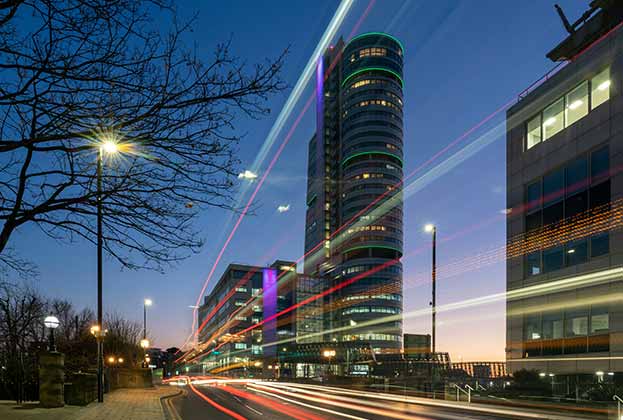The effects of a countrywide lockdown, combined with a greater desire for a more satisfying work-life balance, may have made some of us a little more selective about where we want to spend our working days. This desire, however, must be set against the need for businesses to return to normal as quickly as possible to support economic growth.
Any change in worker behaviour doesn’t necessarily indicate an anti-office mentality – just because people no longer want to go into The Office doesn’t mean that they don’t want to go to An Office. Ultimately, flexibility is the new requirement for the sector, with occupiers and their employees demanding comfortable, accessible spaces that can be easily adapted.
This isn't anything new, but where these spaces are located and how they are designed potentially is. For anyone moving from big cities, missing the office environment and their interactions with co-workers, a regional or local hub could provide the perfect space to continue to connect and work collaboratively with colleagues and clients when required.
It’s also important that businesses remember that remote working isn’t synonymous with home working, and that people would prefer a blend of the two.
Savills Office FiT survey, which looks at the needs and wants of office-based workers before and after the Covid-19 lockdown, shows the important role of the office in providing a sense of community and belonging. However, it also shows that a few weeks into the UK lockdown most people wanted a mix of working from elsewhere and being in the office.
Over the past few years some larger businesses across the UK started to invest in smaller, flexible office spaces in regional centres. Initially many entered the market as co-working spaces, aimed at freelancers and micro-businesses, led by WeWork. Larger businesses took note and started to develop work-hubs of their own for employees and clients to meet and work together as and when required.
More of these local hubs are currently being considered by a number of businesses Savills works with, opening up opportunities for landlords and developers to showcase greater creativity and innovation when designing new offices.
A desire for more non-core locations could also lead to a more hub-and-spoke approach, with corporate large city headquarters envisaged as hosting spaces for clients, supported by a more localised multi-office strategy.
Local hubs have the much-touted benefits of co-working space, but being bespoke for the business offers a greater sense of community. For those looking to separate the personal and professional, they also provide a comfortable space to work from outside the home.
Covid-19 is teaching us that there’s freedom to reimagine what work looks like and where it’s located. With an abundance of appealing regional, suburban and rural locations, combined with increased demand by some workers to live closer to the countryside, the future of work could actually be brighter and more profitable.
Beyond attracting and retaining talent, which remains the biggest expense for any business, a decentralised hybrid office approach also offers businesses, landlords and developers exciting financial opportunities.
Smaller hubs closer to people’s homes could also possibly have significant positive environmental and wellbeing impacts. With an already significant demand for satellite co-working spaces, the crisis may accelerate this growth. It may also assist with helping the UK economy bounce back, invigorating smaller towns and assisting in the creation of new local businesses.
Further information
.jpg)
-impact-the-office-sector(1).jpg)

.jpg)






